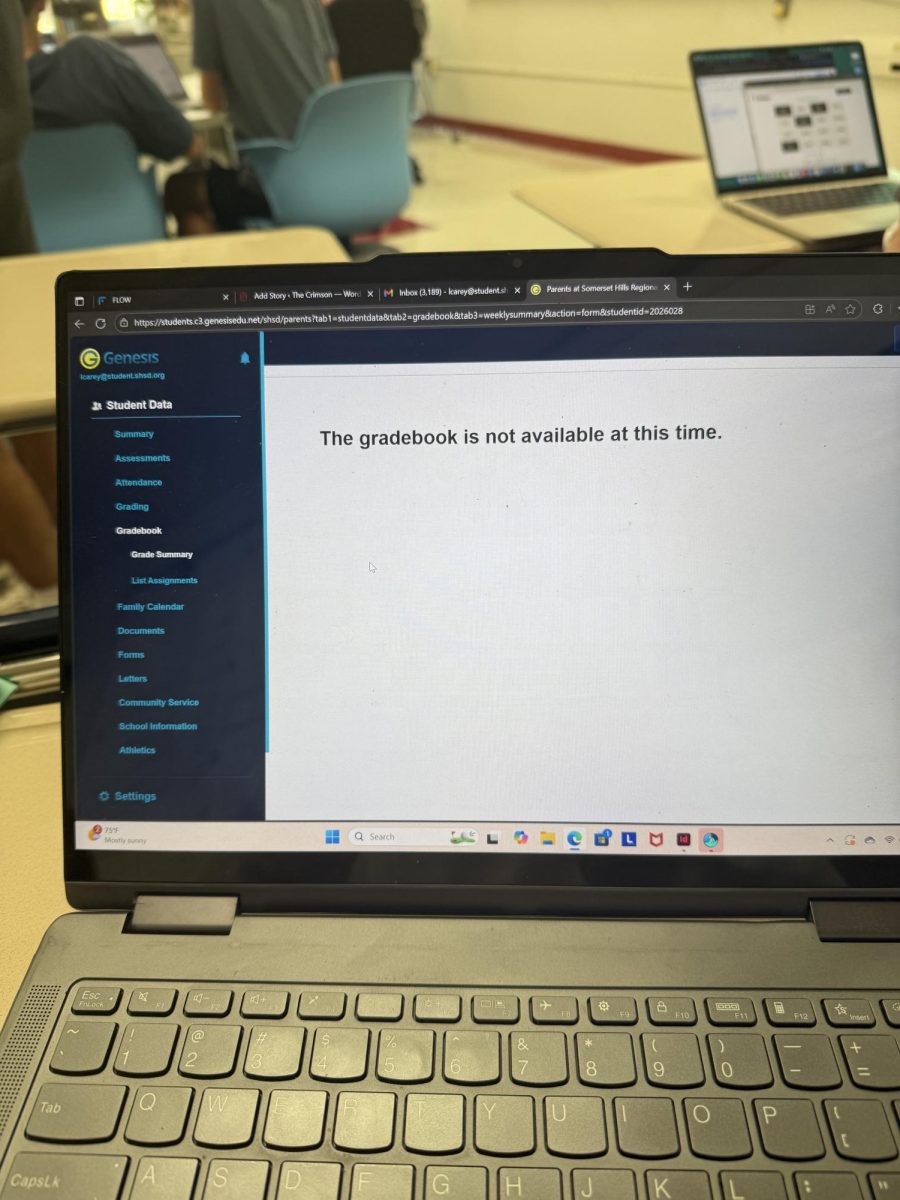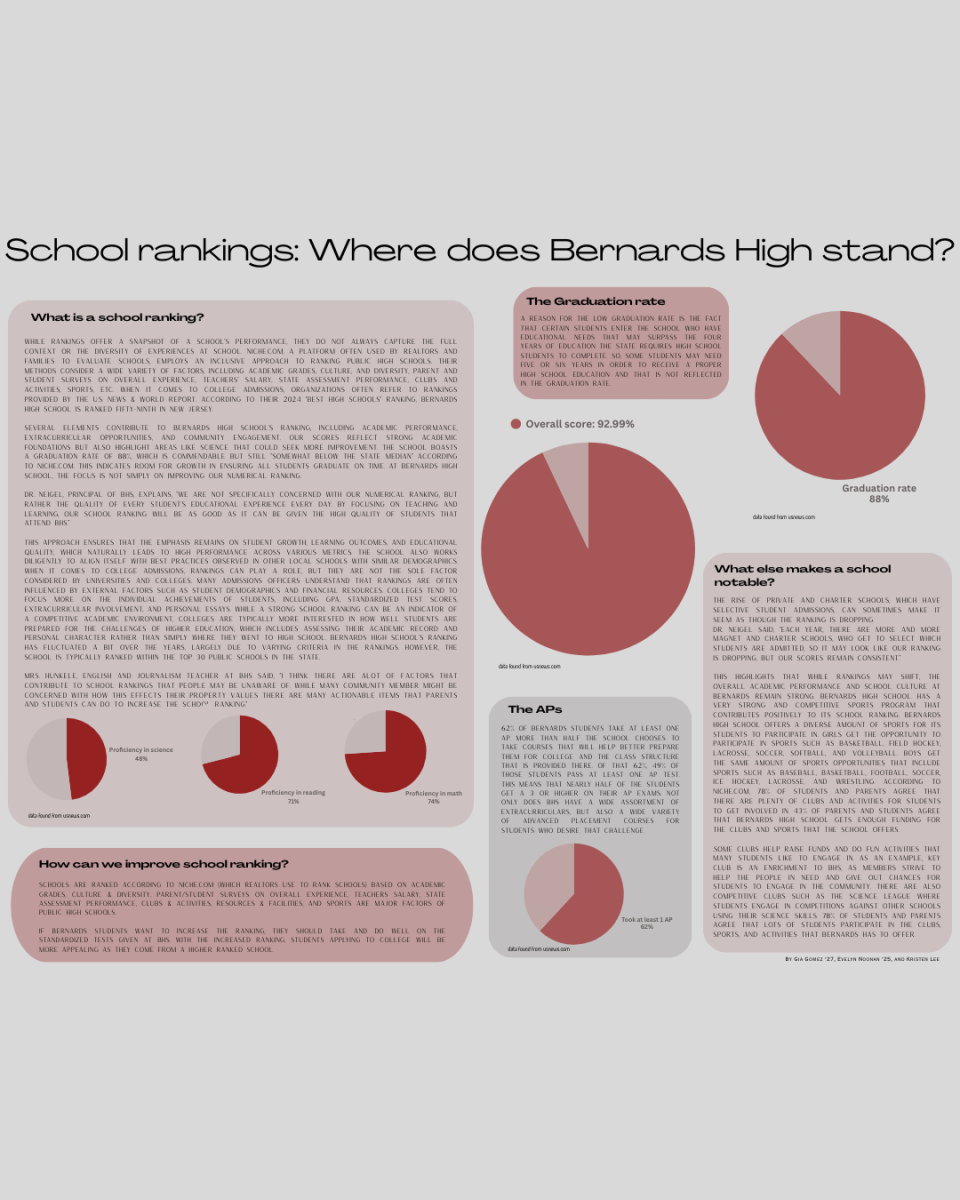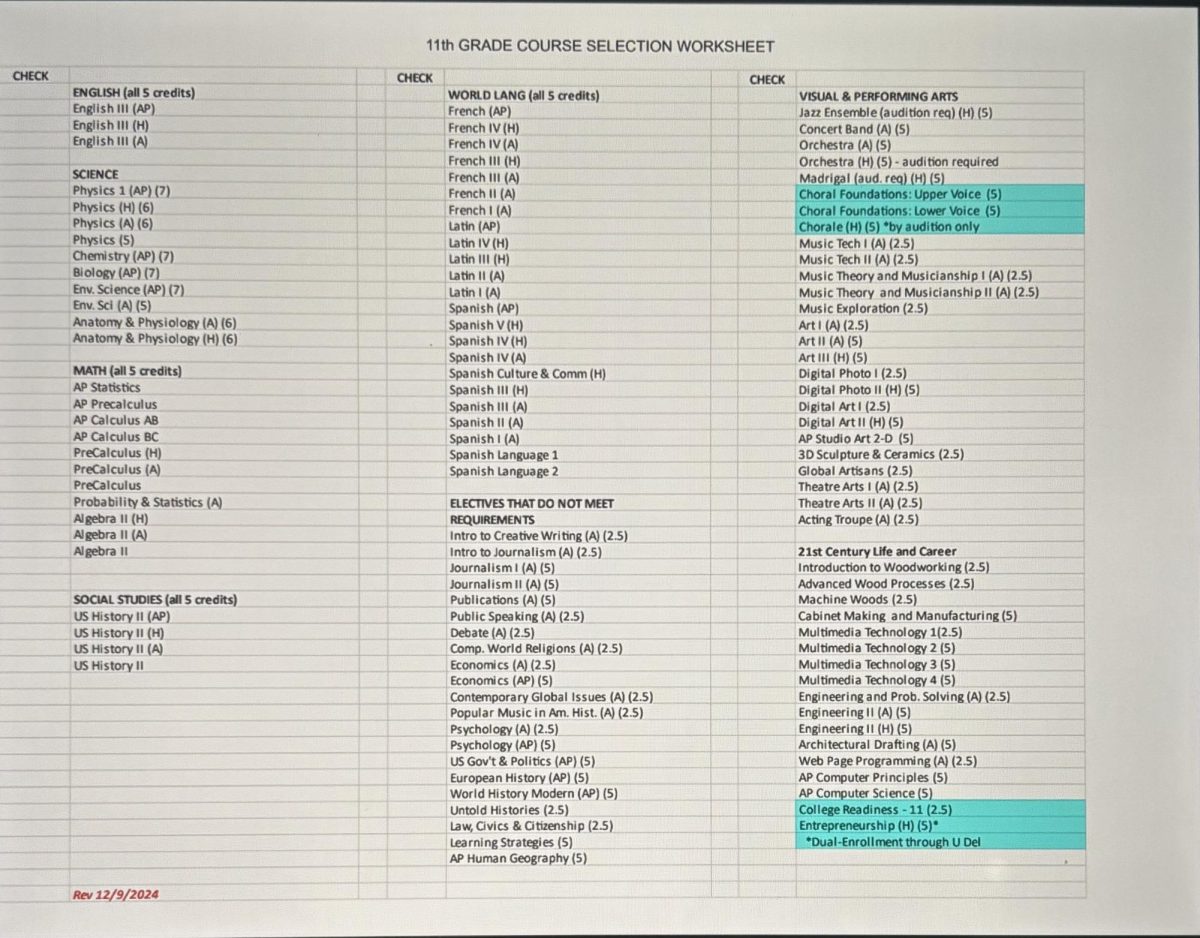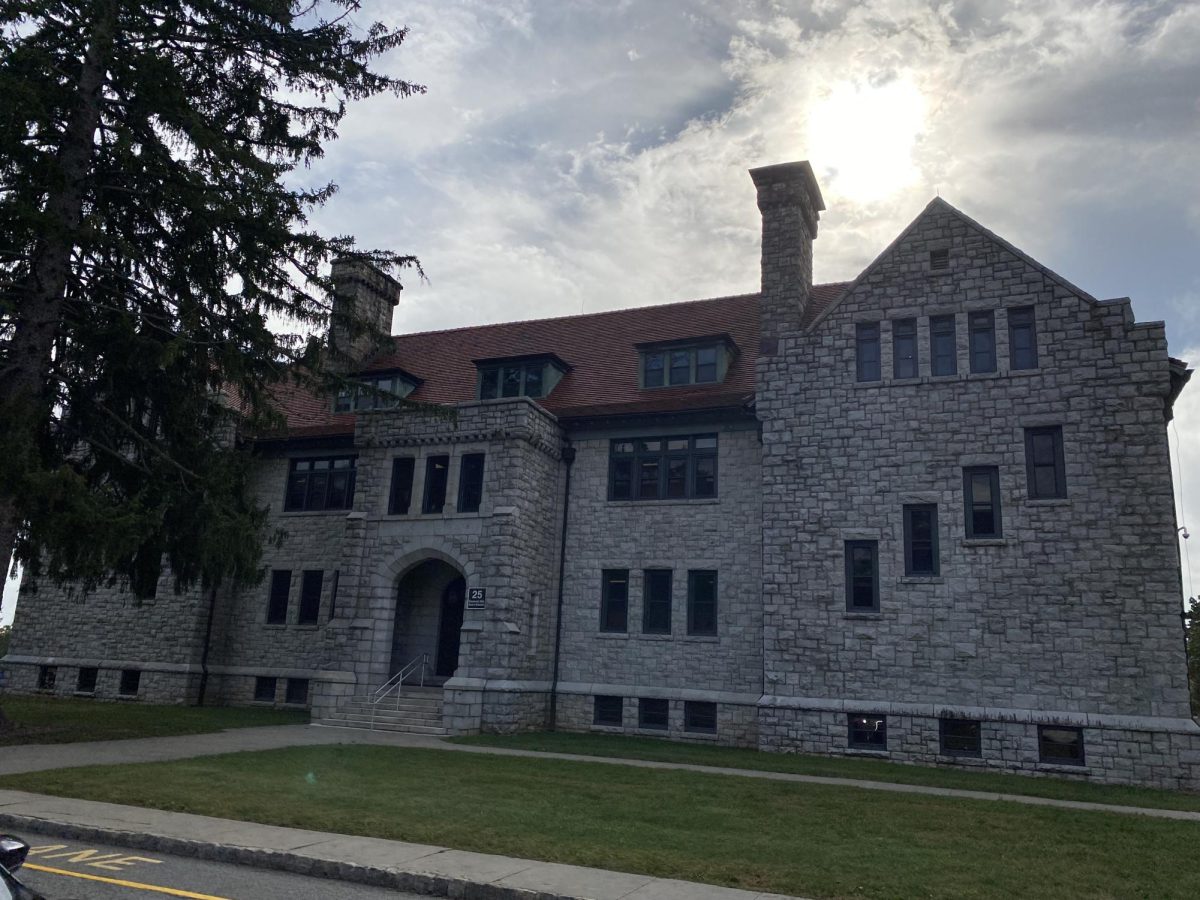Removal of midterms is beneficial for students and teacher
Kyle Shalit
Bernards High School was one of two schools in Somerset County who had both a midterm and a final exam, as most schools have removed midterms and some have even removed finals. BHS administrators consulted with many people: principals from other schools, parents of students, and the students themselves. After two years of discussion, the Board of Education made the correct decision to remove the midterm exam, primarily due to its lack of downsides and its abundance of positives.
Many things were considered in the decision but one group was at focus. Mr. Neigel said “Its about student learning, thats the driving force in every decision we make.” Testing is very stressful for students. When midterms and finals roll around students scramble to gather and review everything they have learned, and removal of midterms allows for students to relax. “This is a positive step for students in regards for stress and balance of their lives,” said Mr. Neigel. Stress is a major issue for students and major testing in the middle of the year will only increase that. After the test, students maintain high stress levels as they wait for their results or, if they did poorly, work harder to lessen the effects of a bad test score. Students have more time to steadily work on school assignments.
Students worry that the final exam will now be worth 20% of the final grade in a class, but this is not true. The numbers will likely be around 22.5% each marking period and 10% on the final. One test often does not accurately portray a students ability, so more focus on the marking period grade allows for the student to shape his or her final grade in other ways then a highly weighted test.
The major goal of high school is the prepare students for college, and one way they achieve this is by having midterms and finals. Yes, it is true that colleges have finals and/or midterms, but do students really need to have eight sets of test during their high school experience? Under the current set up, these eight tests, at average of two hours each, equals 16 hours of testing per subject for four years. Just measuring the five core subjects, that is 20 hours of testing per year. That much testing time is overkill in trying to prepare students for college.
Additionally, PARCC testing has limited instructional time for teachers, and has significantly hurt the flow of classes. PARCC has ruined a week and a half of instructional time. This is worse for AP classes who have deadlines in May to finish course work. AP Calculus BC teacher Ms. Gray says “I need the entire year to teach my entire BC curriculum. I usually finish two or three days before the test. I’ve had to go faster this year.” Students have had to deal with an increased workload in a very difficult class. Ms. Gray says that the removal of midterm exams will give her an extra seven days of teaching time when you factor in time for reviewing for the midterm exam.
Teachers will have much more flexibility and options in the way they would like to teach. Midterms make the curriculum very rigid. Teachers must teach certain topics at certain times in order to prepare their students for midterms. Now teachers can use the extra time allotted to them to run a smaller cumallitive test, which would be done in class and add less stress than a full week of two hours tests. Doing this would allow for teachers to break in the content into smaller chunks. The other options for teachers would be to focus on teaching. Teachers that are behind in the curriculum could use this extra class time to catch up.
Of course there will be kinks to work out the first year or so, but the subsequent years will definitely show that removal of midterm exams is for the best. It will help teachers teach and student learn.
Midterms should be kept to benefit the school
Hanna Elkotni
For the last two years, the Board of Education had been debating whether or not to keep midterm exams. Recently, the Board of Education has made the decision to remove midterms from the schedule. Removing midterms has negative effects on students’ academic careers and teachers’ work lives.
First of all, the final exam could be more heavily weighted. Mr. Neigel said, “We have not determined what the finals will be weighted. Minimum is 10% of the final grade.” This will make the students have to prepare more for the test which can also make them feel overwhelmed with information to study. “I feel that it will make me feel pressured to do well on the finals”, said Junior Sophia Elkotni.
Secondly, the teachers could give the students an exam that is somewhat similar to the midterm, but instead of two hours the test will be given during class time; however, having these test could backfire. They might be hard on students who might feel rushed to finish it in the amount of time. Also, it would be hard to have class after the test. “The year before last year we tried to have class after midterms. It wasn’t a good use of time.” Mr. Neigel said. Teachers and students might feel tired and lack the ability to work.
There are many exams in college. Removing the midterm will make us somewhat unprepared for college. We will still be taking many exams, but not in every subject. “We always keep an eye on what colleges want you to do. You will face test in colleges. We have to be cautious what colleges do.” Mr Neigel said.
Midterms gave students a break from all the hard work. It helped students think about all the information they were gaining throughout the year. Mr. Neigel said “Midterms broke up the year with a different schedule. Some students had days without any midterms, and although they were undoubtedly studying, it was a change of pace”
Many students believe that removing midterms is a positive thing, but BHS should keep midterms. The final could be weighted more, teachers are able to give a test similar to the midterm during the class time, lowering the amount of exams students take will make them less prepared for college and midterms were a break from learning.





















Carolyn Benner (Mrs.) • Apr 17, 2015 at 7:13 am
There is no need for a week of testing mid-year. Teachers can administer unit tests or culminating assessments at the end of each marking period. Students can take these assessments in regularly scheduled class periods in one day, or successive days if needed.